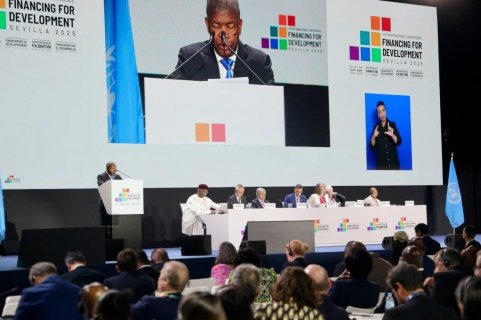In a report, to which Lusa had access, the group, a “think thank” that investigates themes from Southern Africa, defended the nationalization of Efacec and Candando, due to the “economic problems created in the companies owned by Isabel dos Santos”, with “ compensation subject to a suspensive condition ”.
This Thursday, Portugal nationalized 71.73 percent of the share capital of Efacec Power Solutions, a decision approved by the Council of Ministers and already welcomed by the José de Mello group and Têxtil Manuel Gonçalves, minority shareholders of the company
Without commenting on criminal matters that may involve the businesswoman, the daughter of ex-President José Eduardo dos Santos, analysts defend nationalization since the legal actions against Isabel dos Santos could last for years, damaging the functioning of both companies,
Despite considering that the law has mechanisms and that, at least in Angola, they have been used to 'freeze' shareholdings and keep companies running, analysts argue that, in the case of Efacec and Candando, the “survival of companies it was linked to certain businesses and financial articulations carried out within Isabel dos Santos' business universe ".
"In the case of Efacec, it is clear that its acquisition followed a strategy of vertical integration with the construction of major dams in Angola, whose award had been made to companies in which Isabel dos Santos participated, but whose intervention by the daughter of former President of the Republic of Angola has now ceased ", refer the analysts that make up Cedesa.
With regard to Candando, they consider that it is “an investment still in its start-up period, not coming close to maturity, since it was inaugurated in 2017” and “it will need capital contributions from the partners to keep it functioning ".
In this context, for Efacec "there is only one solution, which is the nationalization of the company. The Portuguese State must intervene and nationalize the company, ensuring its restructuring and financing", they reinforce, because from the point of view of the public interest "is the less bad measure ", because it ensures the viability of the company, considered strategic in Portugal.
Nationalization "imposes, as a general rule, compensation to the private holder of the shares", they warn, but, in this case, although Isabel dos Santos was not condemned in any judicial process, on the other hand, "the existence of criminal cases that are public and notorious does not justify giving you compensation immediately ”.
For this reason, the solution involves “an indemnity subject to a suspensive condition”, which would only be paid if the businesswoman was not convicted in the context of the processes that led to the “freezing” of the shareholdings in Efacec.
"From a practical point of view, it is not possible to wait for the finalization of the legal proceedings concerning Isabel dos Santos to resolve the shareholder situation" of the now nationalized Portuguese company, not least because "it was not feasible to reach an agreement to buy the shares" of Isabel dos Santos, write the analysts.
For Cedesa, “the solution is complicated given the participation that the Angolan State indirectly holds in the company, which seems to be overlooked in some negotiations”.
This indirect state participation in the Portuguese company must have a “diplomatic solution between the two countries.
As for Candando, the hypermarket chain that Isabel dos Santos opened in Angola from 2017, but in which its holdings were “frozen” by the courts, in an arrest decreed in December 2019, “this is not an old company with proven, but of a new company with a very large economic and social impact in Angola ”.
In early June, the company even announced the dismissal of 1000 workers and the closing of some stores. But Candando's administration, "apparently retreated in the decision, after a meeting with the Angolan Minister of Commerce and Industry, who promised to inject state funds into hypermarkets," say the analysts.
This compromise solution is, for Cedesa, "a little irrational from the economic point of view, since, on the one hand, Isabel dos Santos' assets are seized, but on the other hand the same State that will seize the assets, will finance those assets ”.
In this way, the government is "hostage to a situation that it does not control, effectively becoming a shareholder / financier of Candando”.
For this reason, the solution pointed out by Cedesa is also "the nationalization of the company", for further privatization.







